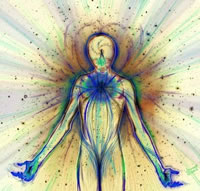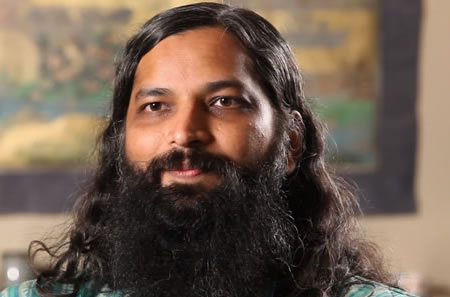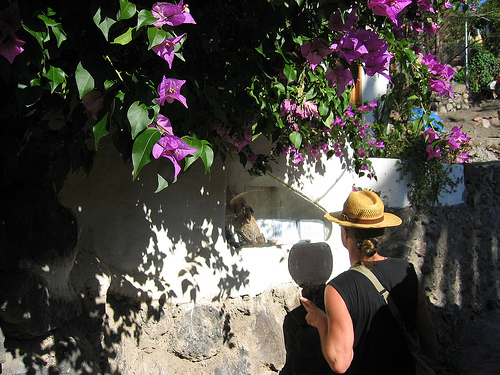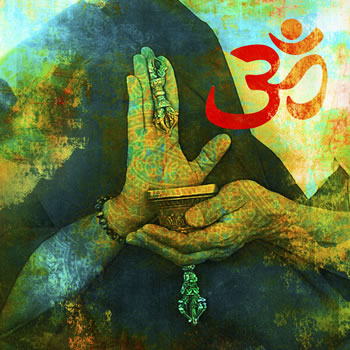We have to create miracles. A miracle is not the intersession of an external divine agency in violation of the laws of physics. A miracle is simply something that is impossible from an old story, but possible from within a new one. It is an expansion of what is possible. – Charles Eisenstein
Recently I was camped in Yosemite Valley and in the middle of the day four deer came to the edge of my campsite and bedded down near where I was sitting. I had the intuition that they were there for me. Four is the number I associate with angels. Later in the day I listened to an animal communicator talk about deer representing the importance of being gentle with yourself. It was just the message I needed at that moment.
Read More → I am certain of nothing but the holiness of the heart’s affections and the truth of imagination. What the imagination seizes as beauty must be truth – whether it existed before or not. – John Keats
I am certain of nothing but the holiness of the heart’s affections and the truth of imagination. What the imagination seizes as beauty must be truth – whether it existed before or not. – John Keats
“I am certain of nothing but the holiness of the heart’s affections and the truth of the imagination.” English Romantic poet John Keats wrote that line in a letter to a friend over 200 years ago. It’s one of my favorite quotes of all time as it has always resonated with my deeper of knowing truth. I share it now because I sense it conveys an important wisdom for our time.
Living from our heart expands us into more of who we really are. We more readily tap into our love, compassion and joy when we live from our heart. Joy is a key element in guiding us along our life path, in knowing what brings us alive, and in expressing ourselves creatively so connecting with our heart helps with all that.
 Sraddhalu Ranade, scientist and scholar at the Sri Aurobindo Ashram, possesses a deep belief in the universality of the experience of oneness. In this complete interview, Sraddhalu Ranade discusses obstacles to living the fullness of our being, the relevance of living our essential oneness in the world today, and the collective spiritual potential of humanity. “What is needed—and that’s the unity of the future—is a unity in which each one knows oneness with all, and yet is uniquely expressive of that oneness in an absolute freedom.” Watch this wonderful video… Read More →
Sraddhalu Ranade, scientist and scholar at the Sri Aurobindo Ashram, possesses a deep belief in the universality of the experience of oneness. In this complete interview, Sraddhalu Ranade discusses obstacles to living the fullness of our being, the relevance of living our essential oneness in the world today, and the collective spiritual potential of humanity. “What is needed—and that’s the unity of the future—is a unity in which each one knows oneness with all, and yet is uniquely expressive of that oneness in an absolute freedom.” Watch this wonderful video… Read More →

No postures, contortions, exercises or routines – just relax, feel nice and easy with yourself. In that silence, sitting peacefully, all happens by itself, understanding arises of its own accord. When the moment is enough, there is no goal, no desire to be elsewhere, no turbulence.
Then energy has another dimension, the dimension of celebration in the moment.
How does one empty the mind? Not with effort, by watching. By becoming a witness. Watching passively, as one watches a river; not actively, as one waits for a lover. In this silence and ease, thoughts recede on their own, one’s mind becomes empty effortlessly. Tilopa
 (excerpts of a 17 pages article)
(excerpts of a 17 pages article)by Nishtha Müller
The inspired poetic Word was the means of passing on knowledge and experience by the Vedic Seers and by Sri Aurobindo, especially in his epic Savitri. What do the Vedic seers and Sri Aurobindo in their poetic creations themselves tell us about the Word, its nature and usage?
The central idea of this article is simply to make potential readers more conscious of the great value of mantric texts and point out a possible way to approach and use them. In regard to the Veda it must be said right from the outset that there exists the special barrier of the Sanskrit language in general and the multi-layer meaning of Vedic terms in particular. In addition there is the all-pervasive Vedic symbolism. Sri Aurobindo often calls the Vedic Rishis “symbologists” and refers back to the period of the composition of the Vedic hymns both as the age of symbolism and the age of intuition. In fact Sri Aurobindo also makes much use of symbolism.





 Help us to grow! What's about to write interesting articles and share the knowledge and new concepts and help to make a sustainable shift in this world. We are living in a transformative world and we need more activists to help to change the world view. Don't hesitate
Help us to grow! What's about to write interesting articles and share the knowledge and new concepts and help to make a sustainable shift in this world. We are living in a transformative world and we need more activists to help to change the world view. Don't hesitate 